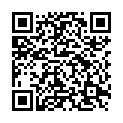|
|
|
| Module code: MST605 |
|
4V (4 hours per week) |
|
4 |
| Semester: 6 |
| Mandatory course: yes |
Language of instruction:
German |
Assessment:
Written exam
[updated 12.08.2012]
|
MST605 Mechatronics and Sensor Technology, Bachelor, ASPO 01.10.2005
, semester 6, mandatory course
|
60 class hours (= 45 clock hours) over a 15-week period.
The total student study time is 120 hours (equivalent to 4 ECTS credits).
There are therefore 75 hours available for class preparation and follow-up work and exam preparation.
|
Recommended prerequisites (modules):
MST104 Technical programming 1
MST206 Technical programming 2
MST403 Fundamentals of Mechatronic Systems
[updated 19.09.2013]
|
Recommended as prerequisite for:
|
Module coordinator:
Prof. Dr.-Ing. Jürgen Schäfer |
Lecturer: Prof. Dr.-Ing. Jürgen Schäfer
[updated 01.10.2005]
|
Learning outcomes:
This module aims to teach the fundamentals of controlling technical processes using computers (PCs) and programmable logic controllers (PLCs). Students will learn how to adapt the process signals so that they can be handled by the PC or PLC and how to transmit signals between the various components. In this course, students will also extend and deepen their knowledge of the programming language C and will learn a PLC programming language. Students will apply what they have learned in four laboratory experiments.
[updated 12.08.2012]
|
Module content:
1. Introduction
2. The use of computers in process control and automation
3. Process I/O; data conversion (A/D and D/A), sample-and-hold circuits
4. Programmable logic controllers; programming languages; logic control and
sequence control systems
5. Measurement data acquisition systems
6. Bus systems: overview; the CAN bus
7. Lab experiment 1: Recording measurement data and processing analogue signals
with a PC
Lab experiment 2: CAN bus control using a microcontroller system
Lab experiment 3: Process control using a PLC
Lab experiment 4: Controlling a stepping motor
[updated 12.08.2012]
|
Teaching methods/Media:
Lectures and lab sessions
[updated 12.08.2012]
|
Recommended or required reading:
- W. Roddeck, Einführung in die Mechatronik, Teubner 2003
- Schiessle (Hrsg.), Mechatronik 1 und Mechatronik 2, Vogel Fachbuch
- R. Isermann, Mechatronische Systeme, Grundlagen, Springer 1999
- A. Auer, SPS – Aufbau und Programmierung, Hüthig Verlag
- A. Auer, SPS – Programmierung, Beispiele und Aufgaben, Hüthig Verlag
- J. Petry, SPS, Projektierung und Programmierung, Hüthig Verlag
- W. Braun, Speicherprogrammierbare Steuerungen in der Praxis, Vieweg Verlag
- G. Wellenreuther, D. Zestrow, Steuerungstechnik mit SPS, Vieweg Verlag
[updated 12.08.2012]
|


